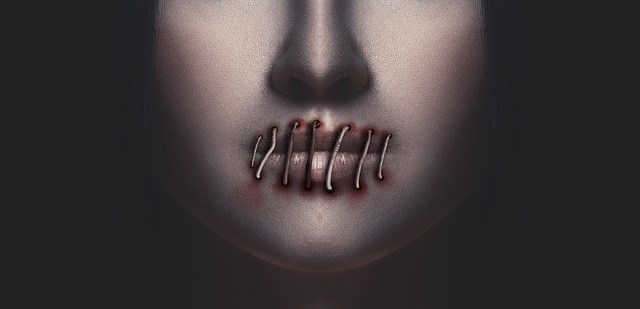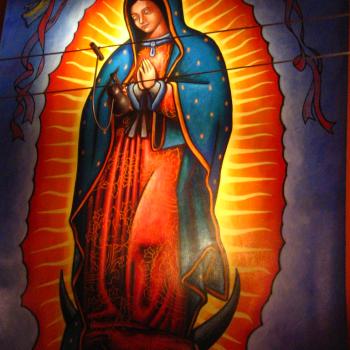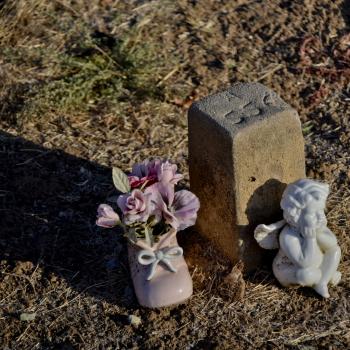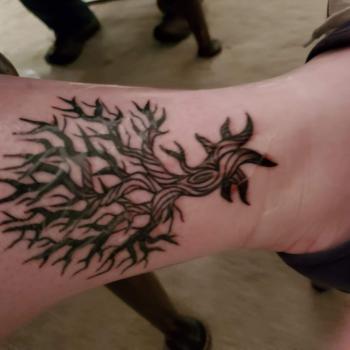I’ve been thinking recently about trauma. And about writing. And about writing publicly about trauma and abuse and healing.
Most of my friends at this point in my life have trauma of some sort (or have been trained, as social workers or psychologists, in trauma theory). Most of them have suffered abuse: parental abuse, spousal abuse, abuse from a boyfriend or girlfriend, rape, stalking, sexual assault, spousal rape, emotional abuse, religious abuse, gaslighting, psychological abuse, physical abuse, domestic violence.
The list goes on. The point is, abuse results in trauma, and trauma causes a whole host of problems that are difficult to navigate. It isn’t a mental illness, but it mimics many mental illnesses. It can exacerbate mental illnesses that are already there.
But trauma and PTSD cannot be treated the same way that mental illnesses are treated. It is a diagnosis all its own, with its own evolving methods of treatment and care.
I think, since the majority of my friends have either experienced some kind of trauma themselves or have formally studied it in psychology or social work programs, I assume everyone knows this.
But this wasn’t always the case (and still is certainly not universal in my circle of family and acquaintances). Three years ago, I had few friends who had experienced trauma, or had healed enough to discuss it and express solidarity as we healed together. In fact, growing up, I was silenced. Just like most victims of Catholic Domestic Violence, I was silenced over and over again, and people still try to silence me.
Melinda Selmys, another columnist here at Patheos Catholic (and one of the writers and thinkers I respect and admire most right now, of all those I’ve encountered), addresses this silencing of victims so endemic in the Catholic Church:
When victims of abuser try to speak out, we often find ourselves in an impossible double bind. A woman who comes forward anonymously is “not credible” because there is no way of verifying her story. She hasn’t had the “courage” to use her real name, so we have no way of finding out if she’s even telling the truth.
On the other hand, if you do use your real name then you are guilty of “detraction,” depriving your spouse of their good name and reputation. I’ve seen some commenters suggest that if a woman accuses a man of abuse without “proof” she is committing calumny. The underlying assumption, of course, is that somehow she doesn’t have accurate knowledge of what she suffered and isn’t qualified to tell the story.
Others may think that there are “two sides.” In one comment thread about a previous post, people were actually musing about how they could get in touch with my ex so that they could hear “his side” of the story.
All of this makes it impossibly difficult for abused women to tell about their experiences and be believed, and it contributes to the illusion that abuse is rare, or that many women who claim to be abused are “making it up” as an excuse to “abandon” their marriages.
Abuse thrives on secrecy. The reality is that most victims keep quiet for years, decades, or even for their entire lives because they are afraid of reprisals, because they love their abuser, because they are afraid their children will be badly effected if they tell the truth, or because they think they will not be believed.
(Seriously, Melinda’s current writing on domestic violence and Catholicism is so vital. If you are a current victim, a survivor, or simply a fellow Catholic who desires to be better informed on this huge problem ricocheting in our Church right now, I beg you to go read her column. I cannot stress how informative her work is.)
So, for those who still struggle to understand why speaking out as a victim or survivor of abuse, how it is not detraction, gossip, calumny, or otherwise somehow unacceptable or offensive, here is an explanation of why I personally must write publicly about abuse and trauma, and how this contributes to both my advocacy and my healing.
First off, a very important note: prayer is great. However. . .
Christ heals, and prayer is a great source of healing for many victims. But God also works in and through modern science and psychology, and understanding trauma and how to support victims is a huge part of that.
Finding Community and Solidarity with Other Victims and Survivors
One thing that is especially important to understand is that trauma victims process and heal in different ways, and one especially strong way to do so is hearing the stories of other survivors and connecting with them. (For example, Melinda’s recent articles have been amazingly helpful to my mom and me, to feel solidarity and to gain greater insight into our own wounds.) In my experience, many victims and survivors have “imposter syndrome” about the abuse we suffered. I can’t count the number of times I’ve told someone, or someone has told me, “Well, my trauma is nothing compared to yours!” Or, “Well, others have suffered so much, can I really call my experience abuse? Do I really have trauma?”
Short answer? Yes. Gaslighting is powerful and is almost universal to abuse. It is the method an abuser uses to convince a victim to doubt their own reality, their experiences, their emotions, their psyche. This teaches us over and over again to doubt and downplay the horrors we experienced. Reading about the experiences of other survivors and connecting with them helps us to validate our own and each other’s suffering and learn methods to heal.
But Why Not Write Anonymously??
Many people have pressured me to write about my experiences of abuse privately or anonymously (as Melinda addresses in the quote above). Some feel it is inappropriate or even morally wrong for me to write publicly about abuse as I do. Well, what you need to understand is that the healing that comes from connecting with other survivors could not happen if I wrote anonymously. I frequently hear from many people I know, and even moreso from people I’ve never met, that my writing has helped them feel less alone (just as I have written to other writers and survivors, like Melinda, to let them know how powerful and healing their writing was for me to read). One person who wrote to me, an acquaintance from my time as a student at FUS, thanked me for helping her understand what her cousins are going through, now that her aunt and uncle have divorced and years of abuse were revealed. This family had always appeared to be a Perfect Catholic Homeschooling Family, too.
One survivor, a man in his 30s, wrote to me when I wrote about domestic violence and thanked me for speaking out. His wife had abused him during the six years of his marriage, and speaking out had been very hard for him.
I’m not saying this to prove I’m somehow awesome and that I have some kind of fanclub to prove it. I’m telling you that this is how trauma and healing work. Moreover, the Catholics I ran with as a child understood abuse as solely physical and sexual. If it wasn’t either of those, it clearly wasn’t abuse. It wasn’t until I had a trauma counselor who told me what I’d experienced counted as domestic violence, and I found resources like the USCCB letter on domestic violence and the National Coalition Against Domestic Violence’s article detailing the types, goals, and effects of domestic violence that I was able to name it. And naming it is a huge first step in combating the impostor syndrome and finding the resources to heal.
I hope my writing will help other Catholics recognize and name abuse, so that they can identify it in their own lives and support the victims surrounding them, rather than silencing them. I know Melinda’s writing is doing just that.
But Why Does It Have to Be Public?
Look, we live in a public society. Telling people who’ve suffered as we have suffered that they we have to tell our truths privately or anonymously is stifling, and maintains the culture of shame that already traps victims. Growing up, my family was well known as this “Good Catholic Family.” But we weren’t a Good Catholic Family (and I’m beginning to seriously doubt whether any family that markets itself this way is ever healthy). Our family was toxic.
Our family was fake for many, many years. It’s how we survived. But there is still so much shame in Catholic circles when a married couple separates. My mom still feels she has to apologize or make excuses about why she doesn’t live with her husband when she meets new people in our heavily Catholic area. She shies away from the constant threat of judgment and curiosity. She has no reason to feel shame, and yet that is the reality of the Catholic world right now. And that is toxic. (If you don’t believe me, just take a look at the way many in the Catholic world have responded hatefully to Melinda’s speaking out.)
People knew us, people outside our private circle, and they also deserve the truth, and I have a right to tell it. It’s not enough for me to write an open letter on facebook explaining why we have made the decisions we have made (as some people have suggested or requested I do) rather than writing in a public sphere such as a Patheos column. People who thought our family was wonderful deserve to know that they shouldn’t try to emulate it. People in the Catholic world need to learn the ways we as Catholics perpetuate and protect abusers and silence victims, and that it’s not okay.
Writing anonymously has its place and is the right answer for some. Jenn and I have hosted the anonymous stories of other survivors here at The Shoeless Banshee, and we are always supportive of that. But anonymity is not for everyone. It often carries less power (see the quote from Melinda above). These stories of abuse and survival need to be told, or justice and healing (and necessary changes in Catholic narratives) will never happen. And for all the reasons I have already stated, those stories must often be told publicly.
And the Truth Will Set You Free
I am writing truth. My truth is not about revenge on my father or tarring his name. I’ve rarely even used his name in my writing. People will make the connection, as he was my father. But that is reality. This is what I experienced. This is what my mother and brothers experienced. People need to know what catholic domestic violence looks like, and they need to know what the church teaches on it, so that they can do a better job than the priests and nuns and other Catholics we knew growing up did to help us escape our abuse and find safety and freedom. (Note, there were also priests and Catholics who did help us find safety and support in the end. I am so intensely grateful to their continuous support and guidance.)
Most importantly, survivors need to know each other’s names, so they can find each other and feel less alone.
But You’re So Bitter!
People have accused me time and again of bitterness. Some say that my writing seems full of hatred and bitterness and anger. First of all, I disagree. But that’s not the point. I do often feel hatred, anger, and bitterness over what I experienced. Over what we as a family experienced. Over what my friends experienced. And guess what?
It’s actually okay for me to feel those things.
They are emotions, and I’m allowed to feel them. It’s a normal part of healing. As for forgiveness, I’ve asked my counselor about it. She says forgiveness is something that happens, not something we can force. But healing needs to happen first. And feeling these things is a necessary part of that, one I won’t shy away from.
Writing it is a way to process. And that’s okay too. And writing publicly is a part of my art and a part of my solidarity with others, who need to know that they are allowed to feel these feelings too. And it is a way for me to teach other young Catholic men and women what domestic violence looks like, what experts in trauma and domestic violence have learned, and what the Church’s Magisterium actually teaches about these issues (and you won’t find that in Jason Evert’s chastity talks, believe me).
I have done two years of therapy with a nationally recognized trauma specialist. I’ve been diagnosed with minor PTSD (and I just had a horrible PTSD nightmare today in which my father moved back in with us, and no matter how much I screamed and reasoned, I could not save my family. That’s trauma, guys.)
I’ve read a lot about these things as I have healed. That doesn’t make me an expert, but it means I have lived understanding and experience of how this works. And this is how this works.
But If You Don’t Forgive Him, You’ll Never Be Free!
I don’t want my father to always play such a large role in my narrative. And he won’t, not forever. But I’m not over this stuff yet. My writing is a large part of my healing as well as my activism and my truthtelling, for myself and for others. As long as I am going through this, my past is going to play a large part in it. And the people who idolize traditionalist Catholics and Catholic homeschooling need to read it.
This is my truthtelling. And if I can believe in a God, it’s the kind who exalts such truthtelling and uprising against injustice and abuse, rather than stifling it.
As I have said before, I know that if I can believe in a God, it must be that one or none at all.
Image Credit: https://pixabay.com/illustrations/woman-mouth-lips-silence-excluded-1445917/













